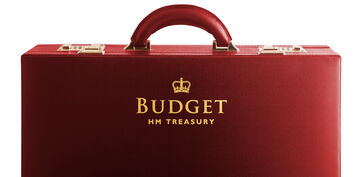Gifts to last a lifetime
Struggling to find the perfect Christmas present for the children? David Prosser tells us why a financial gift in the form of an investment company investment might be the answer.
 Are you struggling to find the perfect Christmas present for the children and grandchildren in your life? For many people, handing over a cash gift is a simple alternative to scouring the shops (or the internet), but that doesn’t have to mean money they can spend in the new year sales. A financial gift that children will cash in when they’re a bit older could be much more valuable.
Are you struggling to find the perfect Christmas present for the children and grandchildren in your life? For many people, handing over a cash gift is a simple alternative to scouring the shops (or the internet), but that doesn’t have to mean money they can spend in the new year sales. A financial gift that children will cash in when they’re a bit older could be much more valuable.
The Association of Investment Companies’ pre-Christmas campaign to encourage saving for children underlines the potential long-term value of financial gifts. Its figures show that if you’d invested £1,000 on behalf of a child 10 years ago in the average investment company, their money would have been worth £3,554 by the end of October; and had you invested 18 years ago on behalf of a new-born, the money would have grown to £3,924 over the same period.
Alternatively, consider a regular gift. Investment companies were among the first financial services groups to recognise the need for long-term savings products for children. Many have been running regular savings schemes for decades; these plans allow you to drip feed cash into an investment company on behalf of a child. Over time, relatively small investments soon add up: a £50 monthly investment in the typical investment company over the 10 years to 31 October would have grown in value to £11,007; over 18 years, the total saved would have been worth £32,006.
Investment company shares rise and fall, which means investors must be prepared to accept the risk of their starting capital shrinking as well as growing. But over longer-term periods – relevant if children are to get their hands on the money at age 18 – shares have in the past tended to outperform all other asset classes. And while stock markets are currently volatile, the interest rates on offer from the bank or building society are hardly attractive – children’s savings accounts often pay less than 1 per cent interest a year.
Don’t forget about tax
It’s easy to forget that children have to pay tax just like everyone else, assuming they earn enough income or make enough profit for income tax or capital gains tax to be relevant. Bear in mind that while tax may not be an issue when you’re first investing on behalf of a child, that may change over time, particularly as their nest eggs increase in value.
It therefore makes sense to consider tax-efficient savings. Investment companies routinely offer individual savings account (Isa) wrappers, which allow investors to shelter a set amount of investment from all tax each year. The current Isa allowance for adults is £20,000 a year, but there is also a Junior Isa for children; in the 2018-19 tax year, investments of up £4,260 are allowed, the equivalent of £355 a month.
Another option, if you want to take a really long-term approach to Christmas giving this year, is to start a pension for a child. Usually, the amount people may invest in a private pension plan each year is not supposed to exceed their earnings; but everyone, children included, is entitled to a minimum pension contribution allowance of £3,600.
Even better, all contributions to private pensions attract at least basic rate income tax relief from the Government. Children get that too, even though most of them are non-taxpayers, so paying £3,600 into a child’s pension actually costs only £2,880; the pension provider then claims the rest of the money from HM Revenue & Customs.
Again, many investment companies offer pension wrappers within which you can hold their products. Just remember that private pensions can almost never be cashed in until the holder reaches the age of 55; your Christmas gift has plenty of time to grow in value but will certainly demand patience from the lucky recipient.







